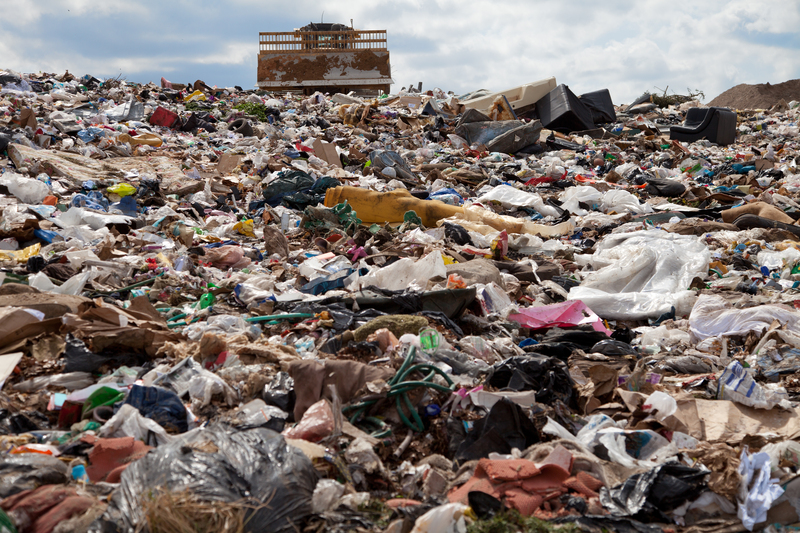Why Every Construction Site Needs a Builders Skip
Construction sites, regardless of size, generate a significant amount of waste. As regulations tighten and the construction industry moves toward sustainable practices, proper waste management has become more important than ever. One critical tool in this process is the builders skip. But why exactly is a builders skip an essential asset on every building site? In this article, we'll explore the critical reasons for hiring skips on construction projects, the benefits they provide, and how they can contribute to a safer, cleaner work environment.

What Is a Builders Skip?
Builders skips, often referred to as construction skips or site skips, are large waste containers designed to hold and transport building debris and rubbish. Typically ranging from 6 to 16 cubic yards (with some even larger), they accommodate bulk loads of materials such as concrete, timber, bricks, insulation, packaging, and other site waste. Unlike standard waste bins, skips are robust, weather-resistant, and purpose-built for tough site conditions.
Main Features of Builders Skips
- Heavy-duty construction for tough materials
- Available in a variety of sizes to suit different project needs
- Designed for easy collection and removal by skip lorries
- Flexible placement--can be stationed on the site or roadside (with proper permits)
- Accommodates a wide range of construction waste, from soil to rubble
Top Reasons Every Construction Site Needs a Builders Skip
Effective waste management is not optional; it's essential. Here's why builders skips should be considered a mandatory part of construction logistics:
1. Efficient Construction Waste Removal
Every construction, demolition, or renovation project generates waste--from old fixtures and excess materials, to rubble and packaging. Without proper skip hire, waste quickly accumulates, creating hazards and impeding progress. Builders skips facilitate the easy, systematic disposal of all kinds of site waste. By providing a central location for rubbish, skips help keep construction sites clean and work areas clear.
- Minimizes downtime spent on multiple trips to the dump
- Instant disposal of everything from broken bricks to plasterboard and insulation
- Saves time and labor costs
2. Ensuring Safety on Site
A cluttered site isn't just an eyesore--it's a serious safety risk. Trips, falls, and equipment malfunctions are often the direct result of waste left unchecked. Builders skips encourage regular cleanup as part of the daily workflow, drastically reducing the risk of accidents and injuries.
- Reduces risk of slips, trips, and falls caused by loose debris
- Keeps hazardous materials--such as nails, glass, and old wiring--contained
- Improves overall site safety and professionalism
3. Compliance with Environmental Regulations
Local authorities have strict regulations governing the disposal of building waste. Failing to comply can result in steep fines, halted projects, and even legal action. Site skips simplify compliance by ensuring waste is separated and disposed of responsibly, often through licenced skip hire companies. Many suppliers handle sorting and recycling, helping your project meet environmental requirements.
- Keeps your project legally compliant
- Reduces your environmental impact through recycling and proper disposal
- Shows commitment to sustainability
4. Cost-Effective Waste Solutions
Without a coordinated waste management strategy, construction-related rubbish piles up quickly, leading to higher removal costs and wasted time. Hiring a builders skip is a fixed, predictable expense that covers all your waste disposal needs. This avoids the expense of multiple van or truck trips, fuel costs, and labor hours spent manually removing waste.
- Reduces overall waste disposal costs
- Limits project delays associated with poor site management
- One-stop waste management solution
5. Promotes Recycling and Sustainable Building
The construction industry is under increasing pressure to adopt sustainable methods. Modern skip hire services will sort, recycle, or repurpose much of the material collected, diverting tonnes of waste from landfill. Using a builders skip makes it easy for contractors and site managers to separate materials on-site, enabling more efficient recycling.
- Facilitates separation of recyclable materials (wood, metal, concrete, etc.)
- Supports green building certifications
- Demonstrates a commitment to environmental responsibility
6. Better Site Organization and Workflow
An organized construction site is a productive construction site. Skips allow for planned waste disposal points, keeping work areas clear and accessible. This reduces time spent navigating piles of rubbish or searching for safe walking paths, and allows all trades to work more efficiently.
- Allows for systematic removal of waste as each phase is completed
- Keeps workspaces clear and tools accessible
- Improves team morale and project organization
The Different Types of Builders Skips for Construction Sites
Choosing the right skip is essential for maximizing efficiency and safety. Here are common types of skips available for builders and construction companies:
Mini Skips (2-4 cubic yards)
- Ideal for small building projects or tight spaces
- Best for lighter, less bulky waste
Midi Skips (4-8 cubic yards)
- Suitable for medium-sized projects such as home extensions or refurbishments
- Accommodates larger items including doors, window frames, and bathroom suites
Builders Skips (6-16 cubic yards)
- The standard for most construction sites
- Perfect for mixed-site waste and heavier debris such as soil, bricks, and hardcore
- Provides enough capacity for significant waste without taking up excessive space
Roll-on/Roll-off (RoRo) Skips (20-40 cubic yards)
- Best suited to large-scale demolition and construction projects
- Designed for vast quantities of heavy, bulky waste
Tip: Always consult with your skip hire provider to select the correct size and type for your project needs.
Best Practices: Using Builders Skips Effectively
To realize the full benefits, it's important to use builders skips properly. Consider these best practices:
- Plan skip placement--ensure skips are accessible, but not in the way of heavy machinery or pedestrian paths
- Do not overload--fill skips only to the marked maximum level to avoid additional charges and safety issues
- Segregate waste--separate hazardous, recyclable, and general waste when possible for improved recycling rates
- Secure necessary permits if placing skips on public roads
- Communicate with your skip supplier regarding acceptable and prohibited materials
Materials Commonly Accepted in Builders Skips
- Bricks, concrete, and rubble
- Earth, sand, and aggregates
- Wood, timber, and pallets
- Metal, pipes, and fixtures
- Packaging, plastics, and glass (check for recycling options)
Prohibited Materials
- Hazardous waste (asbestos, chemicals, paint, etc.)
- Tyres, batteries, gas cylinders
- Electrical appliances (unless otherwise specified)
- Liquids and food waste
Always check with your skip provider for a complete list of allowances and restrictions to stay compliant.
How to Choose the Right Builders Skip Supplier
With so many skip hire providers in the market, selecting the right partner for your construction project is crucial. Here's what to look for:
- Licenced waste carriers--ensure compliance with local and national regulations
- Wide range of skip sizes to accommodate projects large and small
- Clear, transparent pricing with no hidden fees
- Ability to provide deliveries and collections on your schedule
- Capacity for recycling and responsible waste processing
- Excellent customer service and reliability

The Bottom Line: Builders Skips Are Essential
Whether you're managing a home renovation, a commercial build, or a large infrastructure project, efficient waste management cannot be ignored. Builders skips for construction sites are more than just oversized bins--they're an investment in safety, compliance, cost control, and environmental responsibility. Skips enable your team to work more productively, keeping your project on time and within budget, while also demonstrating your commitment to best practices and sustainability.
Key Takeaways
- Every construction site needs a builders skip for safe, compliant, and efficient waste management
- Skips help keep work areas tidy, reducing hazards and improving productivity
- Proper use of site skips supports recycling efforts and limits landfill waste
- Select the right skip and supplier for your project's unique waste needs
In summary, the humble builders skip is an unsung hero of the construction industry. Investing in the right skip hire for your site can make a measurable difference not only to your bottom line, but to the safety, sustainability, and professional image of your business.
Frequently Asked Questions about Builders Skips on Construction Sites
What size builders skip do I need for my construction project?
The required skip size depends on the scale of your project and the types of waste produced. Small renovations may only need a midi skip, while large builds or demolitions generally require a standard builders skip or even a RoRo skip. A reputable skip hire company can provide advice based on your project's specifics.
How do I arrange builders skip hire for my site?
Contact a local, licenced skip provider with your project details--including waste type, estimated volume, and access constraints. They will recommend the right skip size, arrange permits if necessary, and schedule timely deliveries and collections.
Are there any environmental benefits to using builders skips?
Absolutely! Modern skip hire providers prioritize recycling and responsible waste processing. By using builders skips, you support eco-friendly disposal and potentially divert tonnes of material from landfill.
Can I mix all types of construction waste in a builders skip?
Most non-hazardous construction waste can be mixed in a builders skip, but some providers may ask you to separate recyclables or prohibit certain hazardous items. Always check the supplier's guidelines to avoid extra charges or compliance issues.
Are you planning your next building project? Don't let waste management become an afterthought! Secure a quality builders skip and experience the difference it makes to your site's safety, efficiency, and sustainability.